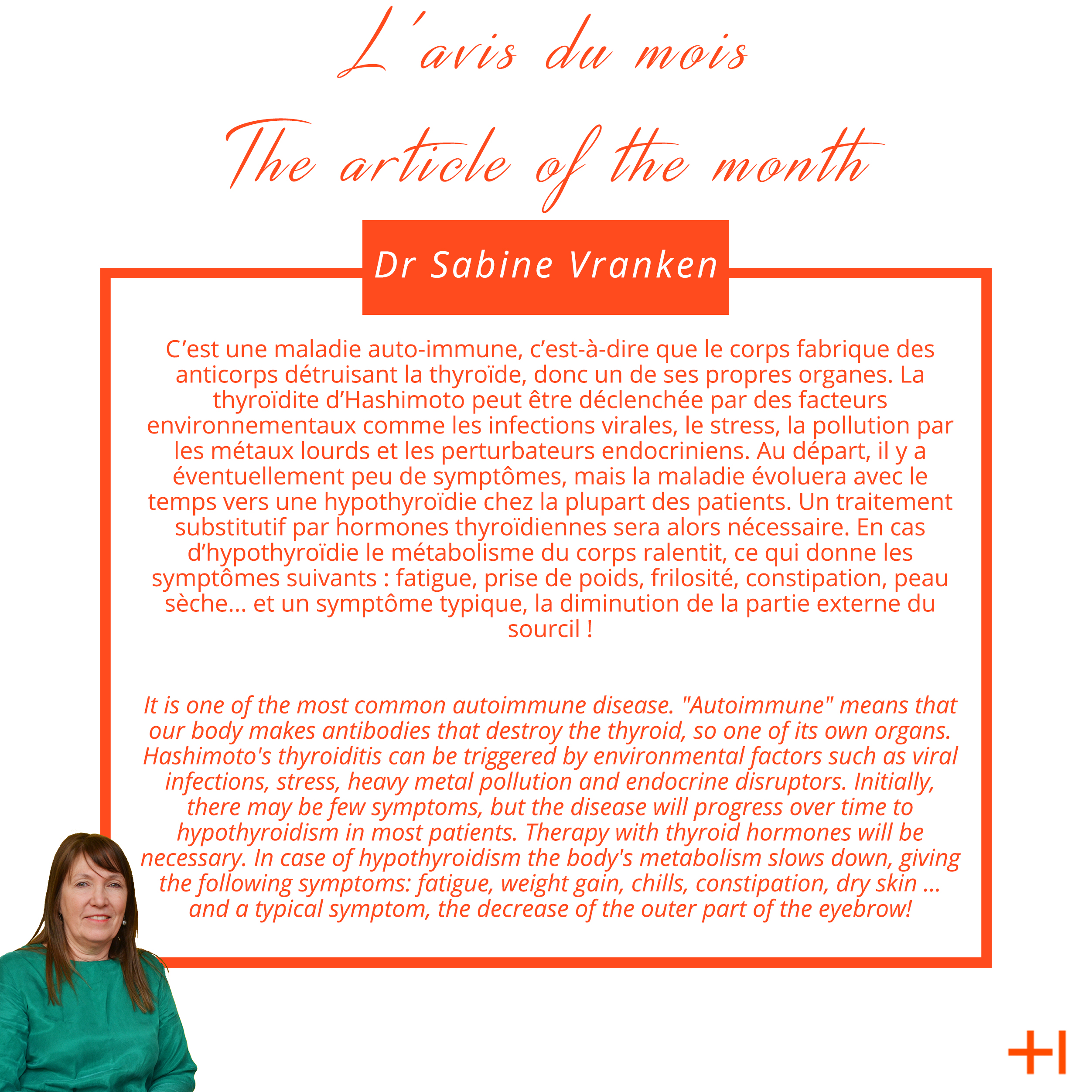The Article of the Month of May: “Hashimoto’s thyroiditis, which solutions?” Dr. Vranken
 I wanted to talk about an affection more and more encountered: Hashimoto’s thyroiditis. It is most common in women around age 40, but it can also be found at any age, even in children.
I wanted to talk about an affection more and more encountered: Hashimoto’s thyroiditis. It is most common in women around age 40, but it can also be found at any age, even in children.
It is one of the most common autoimmune diseases and is often associated with other autoimmune diseases such as celiac disease. “Autoimmune” means that our body makes antibodies that destroy the thyroid, so one of its own organs. The hypothesis of a genetic predisposition is evoked given the frequency of this kind of disease in the same family and its association with chromosomal abnormalities.
Hashimoto’s thyroiditis can be triggered by environmental factors such as viral infections, stress, heavy metal pollution, and endocrine disruptors. Initially, there may be few symptoms, but the disease will progress over time to hypothyroidism in most patients. Therapy with thyroid hormones will be necessary because the thyroid can no longer produce enough thyroid hormones. The thyroid gland is a little orchestra conductor of almost every organ in the body. In case of hypothyroidism, the body’s metabolism slows down, giving the following symptoms: fatigue, weight gain, chills, constipation, dry skin … and a typical symptom, the decrease of the outer part of the eyebrow!
The conventional treatment with L-thyroxine (the so-called thyroid hormone T4) is not always satisfactory, patients remain tired and do not feel well. In this case, we can offer them treatment alternatives, on the hormonal level, a combination of T3 and T4 is much more effective, we can also add a nutritional approach and a mild detoxification of heavy metals. An appropriate diet is recommended: foods rich in selenium, zinc, iodine, vitamin D, Vitamin B12. There is also a supplementation of these vital substances based on an exhaustive blood test. Drinking coffee and alcohol is not recommended because they decrease the absorption of thyroid hormones taken as a substitute. It is also advisable to ensure the health of the intestinal barrier, by avoiding gluten and lactose. With a good hormonal and nutritional follow-up, this disease becomes easier to live!

